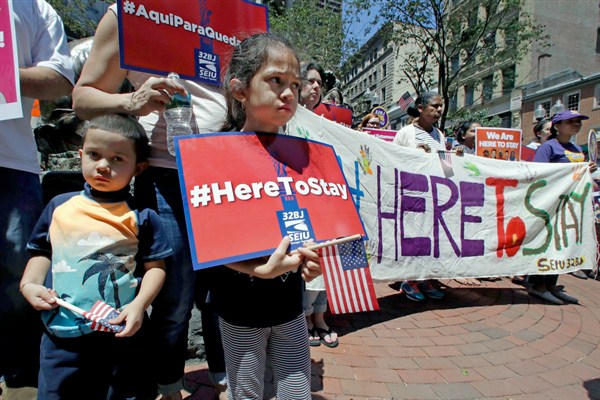On Oct. 12, U.S. Attorney General Jeff Sessions claimed that America’s asylum process was “subject to rampant abuse and fraud,” that migrants were taking advantage of the system and that “genuinely meritorious” asylum claims were down. He offered no evidence for these sweeping statements beyond the fact that asylum petitions had increased in recent years and his claim that “many”—he didn’t say how many—asylum-seekers who pass “credible fear” interviews, the initial screening process for those seeking asylum at the U.S. border, then “simply disappear and never show up at their immigration hearings” once they are in the country. Sessions’ comments reflected attempts by the Trump administration to link the asylum process with hard-line immigration reform, both of which have serious consequences for Central Americans.
Sessions’ comments followed the Trump administration’s announcement in September that it was ending the program, initiated by the Obama administration in 2014, that allowed minors who were trying to escape violence in El Salvador, Guatemala and Honduras and who had parents legally living in the United States to apply for asylum from their home countries. Although the program was later expanded to include other qualifying nonminor family members, its goal was to provide a safe path to reunite Central American children with their parents, rather than see them attempt a dangerous journey north on foot.
Under the Central American Minors Program, minors already in the U.S. who were denied refugee status were automatically eligible to apply for parole, a status that would allow them to stay and work in the U.S. as long as the program existed. Like the refugee program itself, the parole provision required extensive screening, including mandatory DNA testing, to determine eligibility. Shortly after Donald Trump’s inauguration, though, it was suspended pending review. In August, the parole provision was rescinded as the Department of Homeland Security cited “a new strategy to secure the U.S. southern border.”

